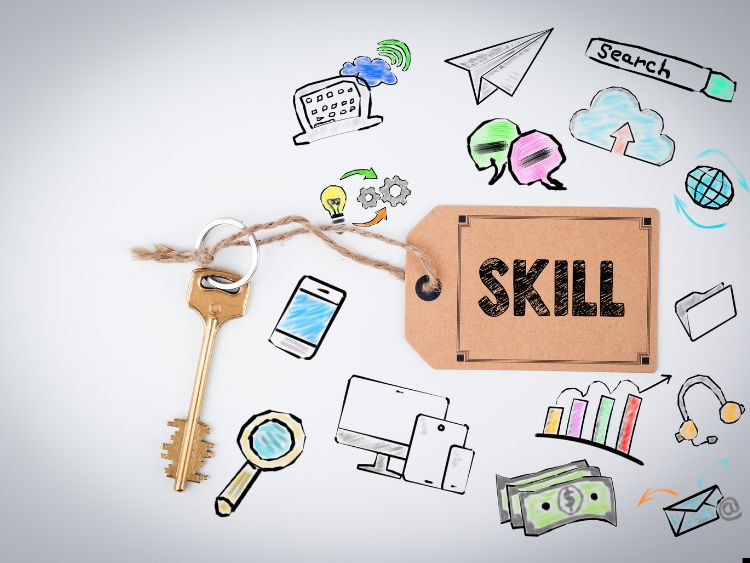The maritime industry is a complex and dynamic field requiring a diverse set of business skills to navigate successfully. For maritime professionals, mastering key business competencies can lead to enhanced career prospects, better decision-making, and overall industry advancement. This article highlights essential business skills such as finance, marketing, and strategic planning, and provides information on how to develop these skills, including resources and educational institutions that offer specialized programs.
1. Corporate Financial Acumen
Understanding financial principles is crucial for maritime professionals, as it enables them to make informed decisions about budgeting, investments, and cost management. Key financial skills include:
- Budgeting and Forecasting: Creating and managing budgets, and forecasting future financial performance.
- Financial Reporting: Understanding financial statements and reports to monitor the financial health of a business.
- Cost Management: Identifying and controlling costs to improve profitability.
How to Achieve Financial Acumen:
- Courses and Certifications: Enroll in courses such as the Certified Management Accountant (CMA) or Certified Public Accountant (CPA) to gain in-depth knowledge of financial management.
- Educational Institutions: Harvard Business School offers executive education programs focused on financial management.
2. Marketing and Business Development
Effective marketing and business development are essential for expanding a maritime business’s reach and customer base. Key marketing skills include:
- Market Research: Understanding market trends, customer needs, and competitive landscape.
- Brand Management: Developing and maintaining a strong brand identity.
- Sales Strategies: Creating and implementing strategies to increase sales and customer engagement.
How to Achieve Marketing Skills:
- Courses and Certifications: Take courses like HubSpot’s Inbound Marketing Certification or Google Analytics Certification to enhance marketing knowledge.
- Educational Institutions: Wharton School of the University of Pennsylvania offers programs in marketing and business development.
3. Strategic Planning
Strategic planning involves setting long-term goals and determining the best course of action to achieve them. Key strategic planning skills include:
- Vision and Goal Setting: Establishing a clear vision and setting achievable goals.
- Resource Allocation: Efficiently allocating resources to support strategic initiatives.
- Risk Management: Identifying potential risks and developing strategies to mitigate them.
How to Achieve Strategic Planning Skills:
- Courses and Certifications: Consider enrolling in Project Management Professional (PMP) certification to gain insights into strategic planning and project management.
- Educational Institutions: INSEAD Business School offers courses focused on strategy and management.
4. Leadership and Team Management
Strong leadership and team management skills are critical for maritime professionals who often work in dynamic and high-pressure environments. Key leadership skills include:
- Communication: Effectively communicating with team members and stakeholders.
- Motivation: Inspiring and motivating teams to achieve common goals.
- Conflict Resolution: Managing and resolving conflicts within the team.
How to Achieve Leadership Skills:
- Courses and Certifications: Participate in leadership training programs such as Dale Carnegie’s Leadership Training or MIT Sloan Executive Education.
- Educational Institutions: Stanford Graduate School of Business provides leadership development programs tailored for executives.
5. Legal and Regulatory Knowledge
Understanding legal and regulatory frameworks is essential for maritime professionals to ensure compliance and avoid legal pitfalls. Key legal skills include:
- Regulatory Compliance: Staying updated with international and local maritime regulations.
- Contract Management: Drafting and managing contracts effectively.
- Risk Mitigation: Identifying and mitigating legal risks.
How to Achieve Legal Knowledge:
- Courses and Certifications: Enroll in courses like Maritime Law at the World Maritime University to gain specialized legal knowledge.
- Resources: Familiarize yourself with resources such as the Jones Act which provides protections and rights for maritime workers.
6. Digital and Technological Proficiency
With the increasing reliance on technology in the maritime industry, digital and technological skills are becoming more critical. Key technological skills include:
- Data Analysis: Using data analytics to make informed decisions.
- Cybersecurity: Protecting maritime operations from cyber threats.
- Automation and AI: Leveraging automation and artificial intelligence to improve efficiency.
How to Achieve Technological Proficiency:
- Courses and Certifications: Take courses such as Coursera’s Data Science Specialization or CompTIA Cybersecurity Certification.
- Educational Institutions: Massachusetts Institute of Technology (MIT) offers programs focused on technology and innovation.
Developing these essential business skills can significantly enhance the career prospects and effectiveness of maritime professionals. By pursuing relevant education and certifications, staying updated with industry trends, and leveraging available resources, maritime professionals can position themselves for success in this dynamic industry.
For more information on programs and resources that can help maritime professionals develop these skills, consider exploring the aforementioned institutions along with the following:
Maritime College;
The Nautical Institute;
California Maritime Academy;
Maine Maritime Academy;
The University of New Orleans;
By investing in education and skill development, maritime professionals can navigate their careers more effectively and contribute meaningfully to the industry’s growth and innovation.
